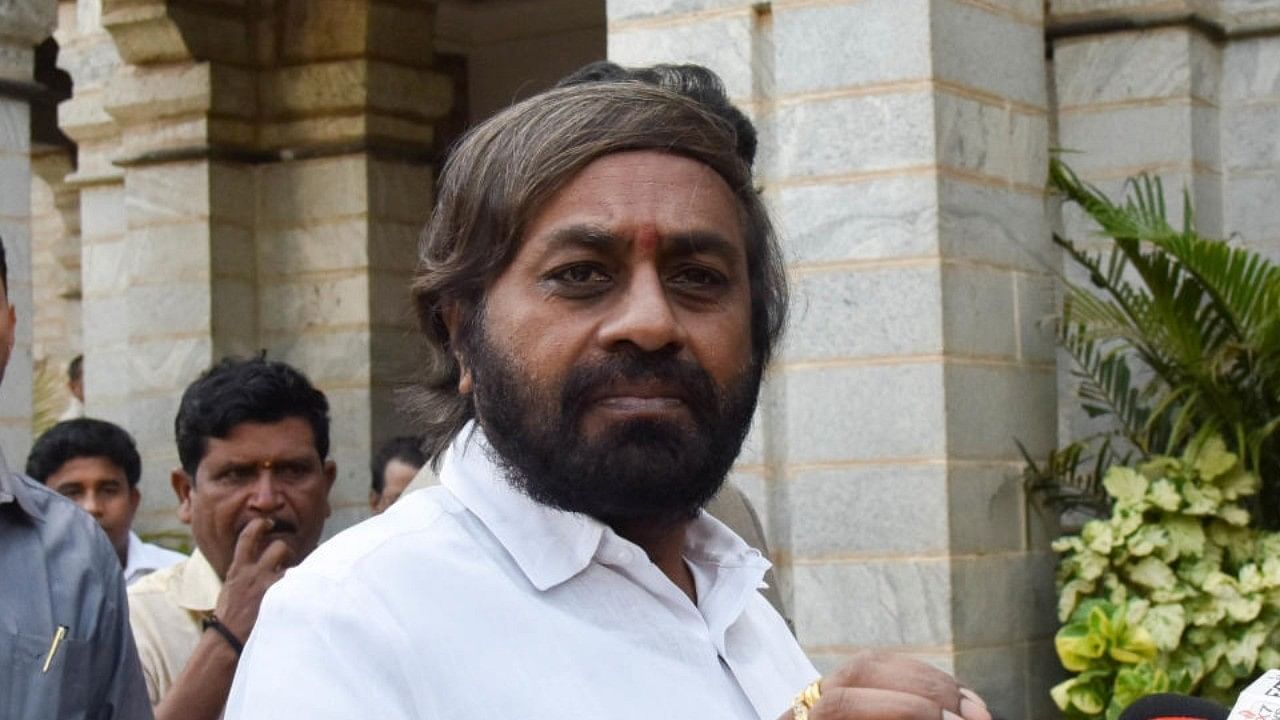
Karnataka Forest Minister Eshwar B Khandre.
Credit: DH File Photo
Bengaluru: Removing Lantana camara and Senna spectabilis should be taken up on priority as the invasive weeds are threatening the forests of Nagarahole, Bandipur and Biligiri Ranganathaswamy Temple (BRT) tiger reserves, said Forest, Ecology and Environment Minister Eshwar B Khandre.
Chairing a review meeting of the board of Tiger Conservation Foundation, the minister said all the officials and personnel of the department should work to realise the main aim of Project Tiger, to conserve the rich biodiversity of the forests.
Khandre advised officials to take up schemes for the welfare of the indigenous people in the forest areas. "The foundation provides for welfare activities aimed at wellbeing of the indigenous people. The Eco Development Committees (EDC) should strive to strengthen these people on the margins," he said.
He said the EDC activities taken up at Kali, BRT, Nagarahole and Bhadra reserves were on the right path. Officials should take up more such activities for empowering the women, providing smart classrooms and laptops to children from indigenous communities.
The minister told the Foundation to consider increasing the food allowance given to the staff at the anti-poaching camps. The daily allowance was increased from Rs 80 to Rs 100 recently. The minister told officials to come up with a proposal to hike the allowance further.
The Foundation approved the proposal to celebrate the silver jubilee of the Bhadra Tiger Reserve. In another decision, the board decided to restore a heritage building in the BRT Tiger Reserve, which is currently being used as a staff quarters.
'Make forests plastic free'
Minister Eshwar B Khandre directed officials to set up a two-stage verification system to ensure that those entering forest areas do not litter.
The minister said he has seen plastic bottles, carry bags and other waste in Bandipur, Nagarahole and the road to Kumaraparvata. "The plastic materials threaten the life of wildlife. I have seen reports of 3-4 kg plastic being removed from the stomach of wildlife like crocodiles and deer," he said.
In the first step, travellers should be advised to dispose of plastic in a waste basket. In the second step, conduct checks and impose penalties, he advised.